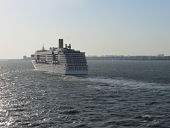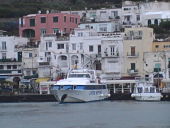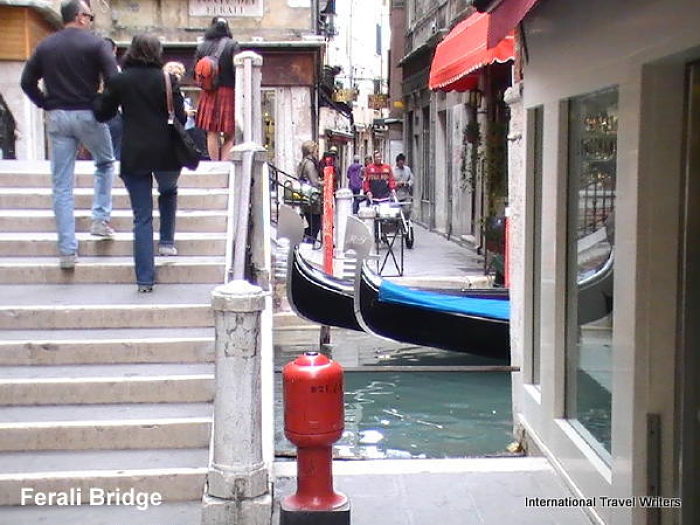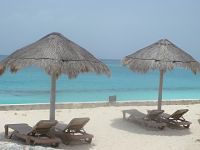Life on the Road - Researching your Destination
(by T.W. Anderson)

Researching Your Destination
Research.
It’s so much more than simply hitting Google and looking for the first Travel
Wiki or guidebook from Lonely Planet or some other “big name” in the industry.
Investigation is the key, and it’s the difference between having the time of
your life...or the worst.
As
a professional travel blogger, there’s only one place I go when I’m looking for
reliable information on my next destination: other bloggers. Why?
Because they are the only ones who have relevant, up-to-date information on the
destinations that I’m researching.
While guidebooks from big-name companies in the “travel” industry were the norm for years prior to the advent of global Internet, the largest issue with guidebooks revolves around the fact that their information is always out of date. Always.

At most, print versions of guidebooks come out once a year. The reality is that most of them only publish revised versions every few years or so, and some of them go a decade or more before they publish a new edition.
How many times have you wandered into a hostel in the middle of nowhere and found a tattered old Lonely Planet guidebook shelved alongside dog-eared copies of local guides? Plenty. And nine times out of ten, that guidebook is at least a decade old, if not more. This makes researching your destination difficult.
Nowhere near current. Nowhere near reliable.
Meanwhile, let’s take a look at the average articles from travel bloggers. They’ve got photos from yesterday/last week/a month ago. Google maps. Current pricing. Phone numbers. Current Facebook and Twitter and website links.
Travel bloggers can tell me what the current political climate is in the country I’m looking to visit. They can tell me what local prices are now...not five or ten years ago. Yesterday. They have relevant links that I can click with my tablet, my cell phone, my laptop...not a tired, old-fashioned print copy that requires me to write down information and hunt down a physical map to find things.
Print
versions don’t have relevant contact information on the ground. If you try and
call the people behind a travel guide from a big name agency, you’ll get the
1-800 line; a customer service representative that doesn’t know the time of
day, much less have the information you need.
Meanwhile, if you contact a travel blogger regarding information on the ground in the destination they were just at, they can refer you to Facebook contacts, Couchsurfing contacts, house sitting contacts, Twitter and Google+ friends, emails of hosts and business contacts and accommodations and restaurants and museums and the local taxi driver who made all the difference during their time on the ground.

Yeah.
I’m a little biased towards bloggers. That’s because I’m one of them. But to be
honest, there’s a reason why tourism agencies around the world are going to
travel bloggers for their press, their marketing, their public relations. We
are in touch with our readers, and we are in touch with each other, making for
an interconnected network that no single guidebook will ever be able to match,
no matter how “reputable” the company behind it might be.
But
researching a destination is more than just finding out the little things. It’s all well and
good to find the best hostels, restaurants and public transportation before you
get there on the ground, but what about long-term amenities for those of us who
are interested in more than just passing through as a backpacker?
What about long-term accommodations? Healthcare for those who have diabetes, children with autism, the elderly who need ongoing treatment for various ailments? What about schooling for children? What about university education for the young adults? What about co-working spaces for the professionally-minded? What about Internet connections, cell phone service, grocery stores, home delivery, babysitting services, information on which areas of the city flood during the rainy season, which areas are safe, which are dangerous, and beyond?

Then
there’s weather conditions. Don’t like the tropics? Don’t like snow? Don’t want
to deal with giant insects? Easily offended by legal drinking ages as low as 14
in the vast majority of countries outside the U.S.? Offended by legal
prostitution? Legal cocaine? Legal marijuana? Teenage weddings? Polygamy? All
of these are things you need to research before you ever set foot on the ground
so you can avoid having a bad travel experience.
Periodically-updated
guidebooks from companies who only send someone on location for two weeks out
of the year never have this information. Why? Because it’s impossible to glean
that type of info from a corporate sponsored trip where you are staying in a
hotel the entire time you are on the ground, eating food on the company dime
and covering what the tourists want to read about.

Meanwhile, bloggers are out there uncovering the nitty gritty, the hidden, the off-the-beaten-path. They travel alone, as couples, with kids, with health issues, on their own dime (and sometimes on the sponsored dime of hotels and tour agencies and restaurants who are trading publicity for services), with their own agendas. Plus, with bloggers you have the benefit of seeing a destination through multiple sets of eyes at once, giving you the chance to review a destination from other trusted sources before you ever step foot in the place.
Some of us live on the ground for months to years, practicing the art of slow travel, or immersion travel as I call it. Living like a local, speaking the local language, earning residency visas, secondary passports, opening businesses, bank accounts, buying real estate, and going so far beyond what the average guidebook covers with its two weeks of on-the-ground research catering entirely to the just-passing-through, give-me-everything-in-English-so-I-can-experience-suburbia-abroad type of traveler.
Not that there’s anything wrong with that type of travel. Guidebooks from big name publishers serve a purpose and they certainly have a market with the two-weeks-a-year crowd. But if you are someone who wants real, relevant, recent information for going beyond the pale...you know where to go. And it certainly isn’t a 10 year old guidebook.
T.W. Anderson has been traveling the world full-time since January of 2008. He is the author of books which detail how to build a blog, brand and income and travel the world without a budget. His website is Marginal Boundaries.com
Related Articles......
Return from Researching Your Destination to International Travel Homepage
Having trouble finding what you need? International Travel Writers Index and Map
OR
Do you have a travel experience or story to share? Share your travels here!
By Carolynne Woods, © Copyright 2010-2020. International Travel Writers.com All rights reserved images and text

















